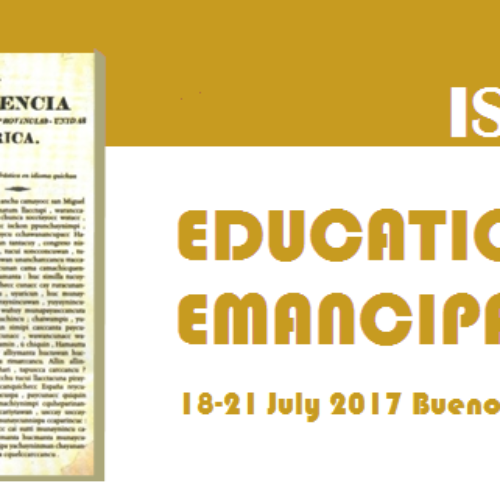Growing up in out-of-home care SWG invites submissions for ISCHE 41 conference. Deadline: Jan.31, 2019
ISCHE 41 (17 – 20 July 2019) – Porto, Portugal
Growing up in out-of-home care: Histories of children and youths in foster families and residential homes
Deadline: January 31, 2019
Convenors: Jeroen J.H. Dekker, University of Groningen (NL), Joëlle Droux, University of Geneva (CH), Els Dumortier, Vrije Universiteit Brussel (B), Aurore François, Université catholique de Louvain (B), David Niget, Université d’Angers (F)
SWG “Growing up in out-of-home care”, CFP for ISCHE 2019 Porto:
During the Porto session, we will examine the very conditions of this research: from archival, methodological and ethical points of view. Proposals for contributions are particularly welcome in the following two areas:
- The openness and accessibility of archives, to researchers but also to former “beneficiaries” of youth protection policies.
What are the conditions (legal, organisational, political, ethics, etc.) that facilitate or, on the contrary, restrict access to archives? What is the impact of recent developments on the right to privacy, the right to information and the right to the truth, and in which way those rights could collide with one another? To what extent does the accessibility of records to research or former children in care change current practices, particularly in terms of record keeping by child welfare or judicial actors?
- The conditions of archives.
Apart from institutions without any archives, the archives still available are normally full of gaps. Moreover, the information available in archives is generally generated by groups with specific interest, such as directors, professionals, the inspectorate, etc. How those archives can still give answers on researcher’s questions on children growing up in out-of-home care?
- Examining ‘growing up in out-of-home care from the point of the care-leavers
Recent historiography of childhood and youth has made actors and their agency a new research paradigm. From now on, it is no longer just a matter of questioning the history of youth policies and treatment; it has become essential to consider this history from the point of view of the care-leavers concerned, in particular by striving to “give them a voice”. This approach raises numerous ethical and methodological questions: how to analyse and restore these voices of young people in their absence and without their consent? How to recognise “authentic” voices from “institutionalised” ones? Besides, to what extent does the oral inquiry address the many gaps in or lack of archives and, if so, what particular challenges do researchers face when using the oral inquiry with adult foster children? Are there other avenues to explore, such as writing workshops, theatrical performances, or providing the public with intimate or family archives?
About author
You might also like
CFP: 2017 ISCHE 39 CONFERENCE! Deadline: Jan. 31, 2017
The ISCHE 39 Conference will take place July 18-21 at the University of Buenos Aires, Argentina in the middle of the bicentennial of Latin American emancipatory processes. Nevertheless, the struggles
Webinar for ECRs in the History of Education
The ECR Thinkering Initiative, in collaboration with the ECR representatives on the ISCHE Executive Committee, is launching a new webinar series aimed at fostering networking and community among early career
Call for Papers – 9th Nordic Educational History Conference, 14-16 May 2025
Location: Stockholm University, Sweden Date: 14-16 May 2025 Conference theme: Power and resistance Wherever there is education, there is power and resistance. The 9th Nordic Educational History Conference invites papers




